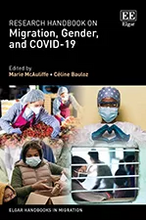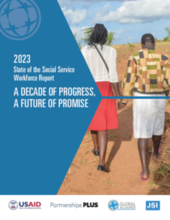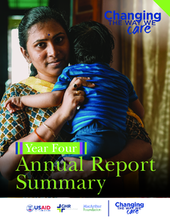This country page features an interactive, icon-based data dashboard providing a national-level overview of the status of children’s care and care reform efforts (a “Country Care Snapshot”), along with a list of resources and organizations in the country.
demographic_data
childrens_living_arrangement
children_living_without_bio
social_work_force
key_stakeholders
Key Stakeholders
Add New DataOther Relevant Reforms
Add New Datadrivers_of_institutionalisation
Drivers of Institutionaliziation
Add New Datakey_research_and_information
Key Data Sources
Add New DataThe Children Act (Uganda)
Country Care Review: Uganda
Prevalence and number of children living in institutional care: global, regional, and country estimates
The National Integrated Early Childhood Development Policy Action Plan (2016-2021) of Uganda
Catholic Care for Children in Uganda: A Family for Every Child - Findings from a Midterm Evaluation
Acknowledgements
Data for this country care snapshot was contributed by a consultant with the Data for Impact (D4I) Project at Palladium Group LLC.
Displaying 21 - 30 of 418
This CPC Learning Network hosted a conversation with partners and faculty affiliates on "Rethinking Child & Youth Participatory Methodologies & Processes: Presentations from our Partner Research Centers in Uganda, Indonesia, and Colombia".
This workshop explores why it is important to support care leavers networks, and how these networks can be supported. The workshop was designed and facilitated by care leavers, with presentations from a regional network working across Africa, and networks in Uganda and Zimbabwe.
This webinar explored the importance of working across sectors to enable effective care reforms. Speakers focused in particular on work with social protection and education sectors, drawing on examples from Kenya, South Africa, Uganda and Rwanda.
This webinar examined care in the context of COVID-19, climate change, and conflict. Speakers explored how the pandemic has left a lasting legacy on the care system in Uganda and examined the impacts of climate change-related drought on children's care in Kenya. They also explored efforts to deliver effective care for children during conflict in Ethiopia.
This chapter is part of the "Research Handbook on Migration, Gender, and COVID-19" and explores the gender and youth dimensions of return from GCC States to the East Africa subregion, focusing on three countries: Uganda, Kenya and Ethiopia.
This report examines the evolution of social service workforce strengthening in the light of the three core pillars of the Social Service Workforce Strengthening Framework: planning, developing and supporting. It identifies significant progress and accomplishments that have been made to strengthen the social service workforce at the global level as well as in three specific countries: Romania, Uganda and Viet Nam.
The Regional Learning Platform on care reform for Eastern and Southern Africa provides an opportunity for government, UNICEF and others involved in care reform
Kampala, Uganda | THE INDEPENDENT | The Permanent Secretary of the Ministry of Gender, Labour and Social Development (MGLSD), Mr.
Changing the Way We Care (CTWWC) promotes safe, nurturing family care for children reintegrating from residential care facilities (often referred to as “orphanages”) and prevents child-family separation by strengthening families, reforming national systems of care for children, and working to shift donor and volunteer support away from residential care and toward family care alternatives.



